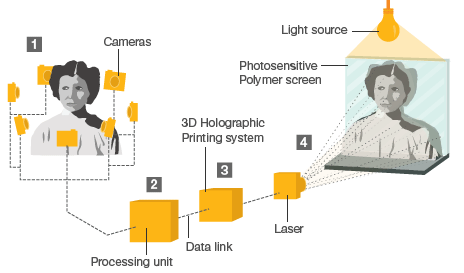There’s a list of movies making the rounds that claims to be the best and worst films as judged by experts from NASA. However, I wasn’t able to find an original source at the company. The list was first published in an article by John Harlow at the Sunday Times. The article is behind their paywall, so I had to pony up £1 for access. Apparently the list comes from a private meeting at the Jet Propulsion Laboratory. Here’s a copy:
Worst sci-fi movies*
- 2012 (2009)
- The Core (2003)
- Armageddon (1998)
- Volcano (1997)
- Chain Reaction (1996)
- The 6th Day (2000)
- What the #$*! Do We Know? (2004)
Most realistic films*
- Gattaca (1997)
- Contact (1997)
- Metropolis (1927)
- The Day the Earth Stood Still (1951)
- Woman in the Moon (1929)
- The Thing from Another World (1951)
- Jurassic Park (1993)
*As named by Nasa and the Science & Entertainment Exchange
The lists strike me as kind of bizarre, they don’t seem exhaustive by any means — you could come up with a lot of changes to either one. Harlow doesn’t mention the parties involved at the private meeting, but he does attribute the list to the Science & Entertainment Exchange. From the SEE website:
The Science & Entertainment Exchange is a program of the National Academy of Sciences that provides entertainment industry professionals with access to top scientists and engineers to help bring the reality of cutting-edge science to creative and engaging storylines.
Ahh, that makes sense. So, there was a meeting between NASA and SEE, in which they discussed movies with bad science. Makes me wonder if those movies were just the ones they happened to talk about rather than some sort of definitive list. It wouldn’t be the first time that Harlow was accused of making shit up. Regardless, NASA definitely doesn’t like 2012, they have a page dedicated to debunking it. Also, be sure to check out SEE’s blog for commentary on the science found in movies.
The lists have been posted on a lot of news websites, but there’s little evidence of any reporting — the articles tend to regurgitate the same information. For many of them, it just seems like a good excuse for a puff-piece with a bunch of Hollywood photos and movie clips.
While searching on the NASA site for an original source, I came across this deliciously old-school listing of space movies from the organization. That takes me back to an earlier web.
Update: I received an email from Marty Perreault, the Director of The Science & Entertainment Exchange, stating that they had nothing to do with the list:
I read your article “NASA and bad science movies†posted on January 3rd. You incorrectly attribute the list of films to the Science & Entertainment Exchange, a program of the National Academy of Sciences (NAS). Neither the Exchange nor the NAS was involved in creating such a list.
I reproduced the list from The Sunday Times, in which they attributed the list to SEE. I took a screenshot, here’s the relevant portion of the article.
The Australian is carrying an article by John Harlow, in which he credits Donald Yeomans for statements about the absurdity of 2012. Perhaps Yeomans was the source of the original list, or maybe the meeting was so private the only attendee was Harlow’s imagination.
Update 2: I sent an email to Donald Yeomans, the manager of the Near-Earth Object Program, who was quoted in John Harlow’s piece about 2012 for The Australian.
From Yeomans’ email response (original text):
There is no list and there was no meeting to put together such a list. NASA would never put together a list of “worst sci-fi films.” We are not movie critics.
He stated that he was interviewed by a British journalist, but was subject to misquotes and manufactured quotes. Yeomans also says that there was a meeting at JPL related to how Hollywood and NASA could help each other. The movie 2012 was discussed at the meeting, but he has not seen it. He also linked to a video that tries to dispel general internet paranoia about 2012. Yeomans was also quoted in the original article at The Sunday Times.
There you go — bad reporting to begin with and equally poor journalism from news outlets regurgitating the story without looking for original sources.

